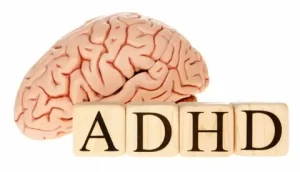Living with adult ADHD presents unique challenges that extend beyond the initial diagnosis. Understanding how to thrive with ADHD involves adopting practical strategies that address both the symptoms and the impact on daily life. This article provides actionable tips and approaches to help you manage ADHD effectively and enhance your quality of life.
Understanding Adult ADHD
The Nature of Adult ADHD
Attention Deficit Hyperactivity Disorder (ADHD) is a neurodevelopmental disorder that often continues into adulthood. It affects attention, impulse control, and executive functioning. While many people associate ADHD with children, adults can experience significant challenges that impact their personal, professional, and social lives.
Common Challenges Faced by Adults
Chronic Disorganization:
Difficulty managing tasks and maintaining organization.
Impulsivity:
Making hasty decisions that may lead to regret.
Difficulty with Focus:
Struggling to concentrate on tasks and follow through with commitments.
Time Management Issues:
Challenges with managing and prioritizing time effectively.
Practical Strategies for Managing ADHD
Creating an Organized Environment
A well-organized environment can greatly enhance your ability to manage ADHD symptoms. Implementing effective organizational strategies can help reduce stress and improve productivity.
Declutter Regularly
A clutter-free space can minimize distractions and enhance focus. Develop a routine for decluttering your workspace and living areas.
Daily Tidy-Up:
Spend a few minutes each day organizing your space.
Weekly Reviews:
Set aside time each week to reassess and reorganize your environment.
Use Organizational Tools
Utilize tools and systems designed to help you stay organized and on track.
Planners and Calendars:
Use physical or digital planners to track tasks, deadlines, and appointments.
Task Lists:
Break down tasks into smaller, manageable steps and create to-do lists to stay organized.
Implementing Effective Time Management
Time management is a critical skill for individuals with ADHD. Developing strategies to manage your time effectively can help you stay focused and complete tasks efficiently.
Prioritize Tasks
Determine the most important tasks and tackle them first. Prioritization helps ensure that you address high-priority items before moving on to less critical tasks.
Eisenhower Matrix:
Use this tool to categorize tasks based on urgency and importance.
Daily Priorities:
Identify and focus on three main tasks each day.
Time Blocking
Allocate specific blocks of time for different tasks or activities. This technique helps you maintain focus and manage your time more effectively.
Work Intervals:
Work in focused intervals (e.g., 25 minutes) followed by short breaks to enhance productivity.
Scheduled Breaks:
Plan regular breaks to prevent burnout and maintain energy levels.
Enhancing Focus and Concentration
Improving focus and concentration is essential for managing ADHD symptoms. Implementing strategies to minimize distractions can help you stay on track.
Minimize Distractions
Create a distraction-free environment to improve your ability to concentrate on tasks.
Designated Work Areas:
Set up a specific area for work or study that is free from interruptions.
Limit Interruptions:
Use tools like noise-canceling headphones or focus apps to reduce environmental distractions.
Use Focus Techniques
Employ techniques designed to enhance focus and concentration.
Pomodoro Technique:
Work in short, intense bursts (e.g., 25 minutes) with brief breaks to maintain concentration.
Mindfulness Practices:
Incorporate mindfulness or meditation practices to improve attention and reduce stress.
Developing Emotional Regulation
Managing emotional responses is a key aspect of thriving with ADHD. Developing emotional regulation skills can help you handle stress and improve overall well-being.
Identify Emotional Triggers
Understanding what triggers emotional responses can help you develop strategies to manage them more effectively.
Self-Reflection:
Pay attention to situations or events that trigger strong emotions and reflect on patterns.
Journaling:
Keep a journal to track emotional responses and identify recurring triggers.
Implement Coping Strategies
Develop and practice coping strategies to manage emotional challenges associated with ADHD.
Relaxation Techniques:
Practice deep breathing, progressive muscle relaxation, or guided imagery to manage stress and anxiety.
Physical Activity:
Engage in regular exercise to boost mood and reduce symptoms of depression and anxiety.
Building and Utilizing Support Networks
Having a strong support network can provide emotional support and practical advice for managing ADHD.
Connect with Others
Building connections with people who understand ADHD can offer valuable support and insights.
Support Groups:
Join ADHD support groups, either in-person or online, to connect with others who have similar experiences.
Friends and Family:
Educate and involve friends and family members to foster understanding and support.
Seek Professional Help
Professional support can offer guidance and strategies tailored to your specific needs.
Therapy:
Cognitive Behavioral Therapy (CBT) and other forms of therapy can help address negative thought patterns and develop practical coping strategies.
ADHD Coaching:
Work with an ADHD coach to set goals, develop strategies, and improve organizational skills.
Managing Workplace Challenges
Navigating the workplace with ADHD involves addressing specific challenges and implementing strategies to improve performance.
Communicating Needs
Effective communication with employers and colleagues can help manage workplace challenges.
Discuss Accommodations:
Explore potential accommodations that can help you perform your job more effectively.
Provide Updates:
Keep your employer informed about any changes or needs related to your ADHD.
Enhancing Job Performance
Develop strategies to improve job performance and productivity.
Task Management:
Use tools like task management apps or project management software to stay organized and on top of your work.
Regular Check-ins:
Schedule regular check-ins with yourself or a mentor to assess progress and address any challenges.
Conclusion
Thriving with adult ADHD involves more than just managing symptoms; it requires a proactive approach to creating a structured environment, enhancing focus, developing emotional regulation skills, and building a supportive network. By implementing these practical tips and strategies, you can improve your ability to manage ADHD, enhance your productivity, and lead a fulfilling and balanced life. Remember, success with ADHD is a journey that requires patience, self-compassion, and ongoing effort.



